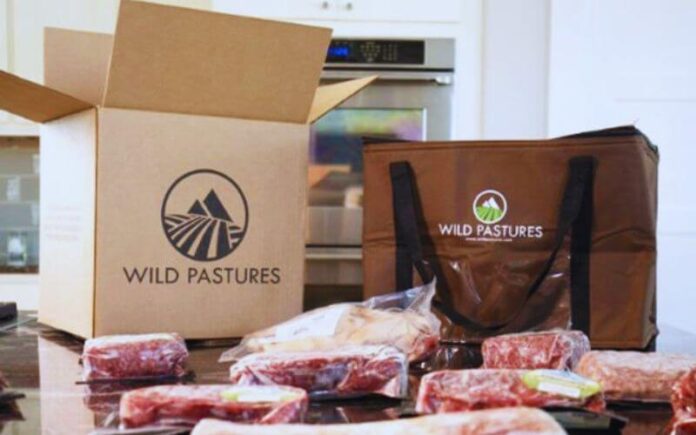Finding high-quality, affordable meat can be a challenge for many people today. As consumers grow more conscious of their health and the environment, the demand for organic, grass-fed, and pasture-raised meat has surged. However, sourcing such products often comes with high costs or limited availability. This is where Wild Pastures comes in
a company dedicated to providing premium meat that’s both sustainable and accessible. But who owns Wild Pastures, and what’s the story behind this innovative business? Let’s dive in.
Wild Pastures Overview
Wild Pastures is a meat delivery service that focuses on providing high-quality, pasture-raised and grass-fed meats directly to consumers. The company operates as a membership club, offering various cuts of beef, chicken, pork, and wild-caught seafood that are sourced from a network of American family farmers.
What makes them stand out is their strong emphasis on regenerative farming practices, which are methods that aim to improve soil health, benefit the environment, and raise animals in a humane and natural way. The founders, Chas and Autumn Smith, launched the company with the mission of making these types of nourishing meats more accessible and affordable, believing they are better for both people and the planet.
Who Owns Wild Pastures?
Wild Pastures, a meat delivery service specializing in pasture-raised and grass-fed products, was founded by husband and wife team Chas Smith and Autumn Smith his brother Matt Smith, Matthew McConkey, and his brother-in-law John Etchart in 2018.
Autumn Smith, one of the co-founders, plays a key role in shaping the company’s values. As a holistic nutritionist, she has long advocated for nutrient-dense diets that prioritize real, clean food. Her professional background in nutrition inspired the creation of Wild Pastures, aligning the brand’s offerings with health-conscious dietary practices.
Her husband, Chaz Smith, also played a significant role in bringing Wild Pastures to life. Together, they combined their expertise to address the challenges consumers face when trying to access affordable, high-quality meat. With family ties to the business, their vision reflects a personal commitment to creating a healthier, more sustainable food system.
The other co-founders Matt Smith, Matthew McConkey, and John Etchart bring diverse skills to the table. Their combined experience in farming, logistics, and business operations ensures Wild Pastures runs smoothly. This collaborative effort among founders shows how a shared passion can lead to meaningful change in the food industry.
Ownership History of Wild Pastures
Wild Pastures was born out of a simple but powerful idea: to make healthy, sustainable meat available to everyone. The company’s journey began with Autumn Smith’s work as a holistic nutritionist. She noticed a significant gap between what she recommended to her clients and what was accessible to them.
Grass-fed and pasture-raised meat, while nutritionally superior, was often out of reach due to high prices or limited availability. Autumn and Chaz Smith decided to address this problem directly by creating a company that connects consumers to farmers practicing regenerative agriculture.
Early on, the founders focused on identifying farms that met their strict standards. They partnered with regenerative farms committed to humane animal treatment and sustainable land practices. This approach allowed Wild Pastures to offer meat products that are not only healthful but also environmentally responsible.
Since its inception, Wild Pastures has grown steadily, expanding its reach and product offerings. The founders’ commitment to affordability and sustainability remains at the heart of the company’s operations.

Wild Pastures’ Business Model
The business model of Wild Pastures revolves around simplicity and sustainability. The company operates on a subscription-based delivery system, allowing customers to receive meat directly to their doorsteps.
By cutting out middlemen, Wild Pastures reduces costs and ensures farmers receive fair compensation. This direct-to-consumer approach not only keeps prices affordable but also strengthens relationships with regenerative farms.
Their model is built around bulk orders, which helps minimize packaging waste and transportation emissions. Customers can choose from a variety of subscription plans based on their preferences, making it easy to access high-quality meat regularly.
Wild Pastures also values transparency. Customers can learn about the farms where their meat is sourced, giving them confidence in the product’s quality and ethical standards. This focus on education and openness sets Wild Pastures apart from many competitors in the meat delivery space.
Impact on Sustainable Farming
Wild Pastures is more than a business it’s a champion for sustainable farming. By partnering with regenerative farms, the company helps promote practices that improve soil health, preserve water, and combat climate change.
Regenerative grazing is at the heart of these efforts. This method involves rotating livestock across pastures to mimic natural grazing patterns. It prevents overgrazing, restores soil nutrients, and encourages plant growth.
Wild Pastures also supports biodiversity by choosing farms that prioritize ecosystem balance. These farms often integrate wildlife habitats and avoid harmful chemicals, creating environments where nature thrives alongside agriculture.
The company’s impact extends to farmers as well. By providing a consistent market for regenerative meat, Wild Pastures empowers farmers to adopt sustainable methods without worrying about profitability. This collaboration benefits both the environment and the people working hard to protect it.
Future of Wild Pastures
The future of Wild Pastures looks promising as the demand for sustainable, high-quality meat continues to grow. The company aims to expand its reach, bringing its products to more households across the country.
Innovation will likely play a key role in their growth. Wild Pastures may explore new ways to make delivery even more efficient or introduce additional products to meet customer needs. Educational initiatives are also on the horizon, helping consumers understand the importance of regenerative farming.
As awareness of climate change and health increases, Wild Pastures is well-positioned to lead the way in sustainable meat production. Their dedication to affordability, transparency, and eco-friendly practices keeps them ahead of industry trends.
Conclusion
Wild Pastures is reshaping the way we think about meat. Founded by a team of passionate individuals, the company combines health expertise, family values, and sustainable farming to deliver high-quality products.
By focusing on regenerative agriculture and direct-to-consumer delivery, Wild Pastures addresses two major challenges: affordability and environmental impact. Their efforts not only benefit customers but also support farmers and ecosystems.
Also Read:

